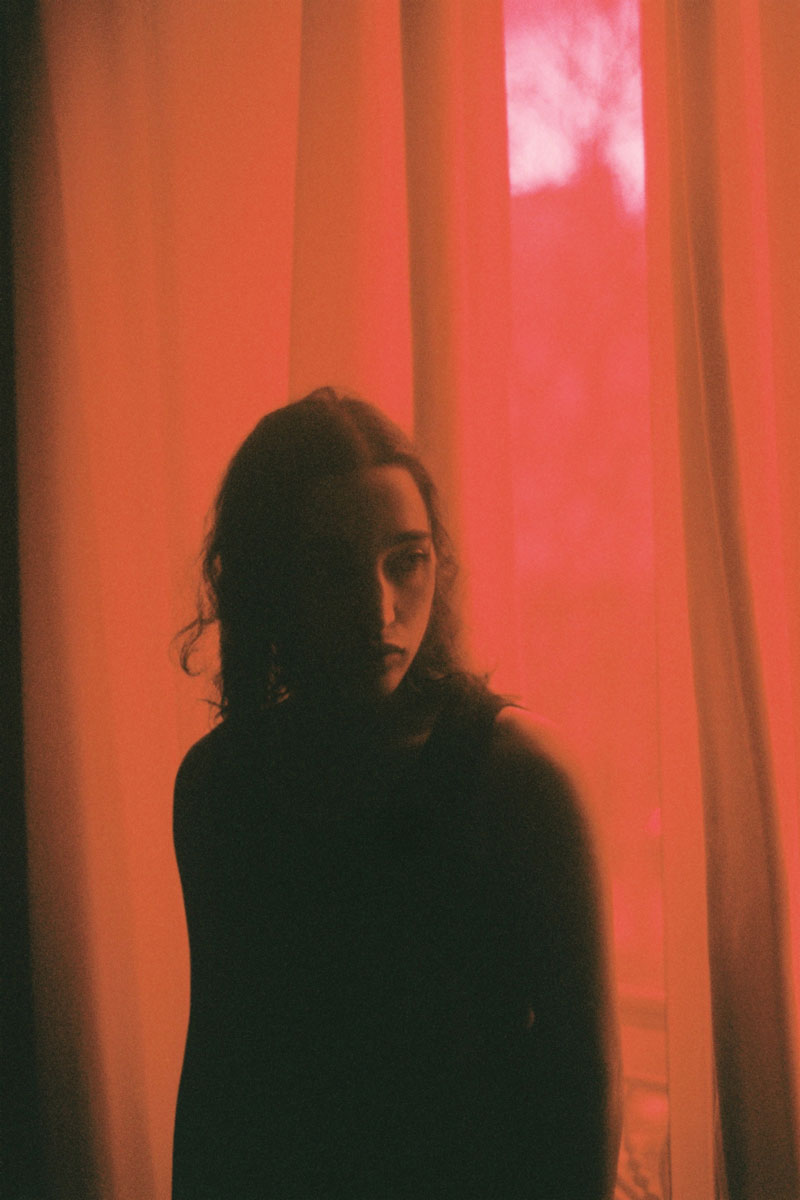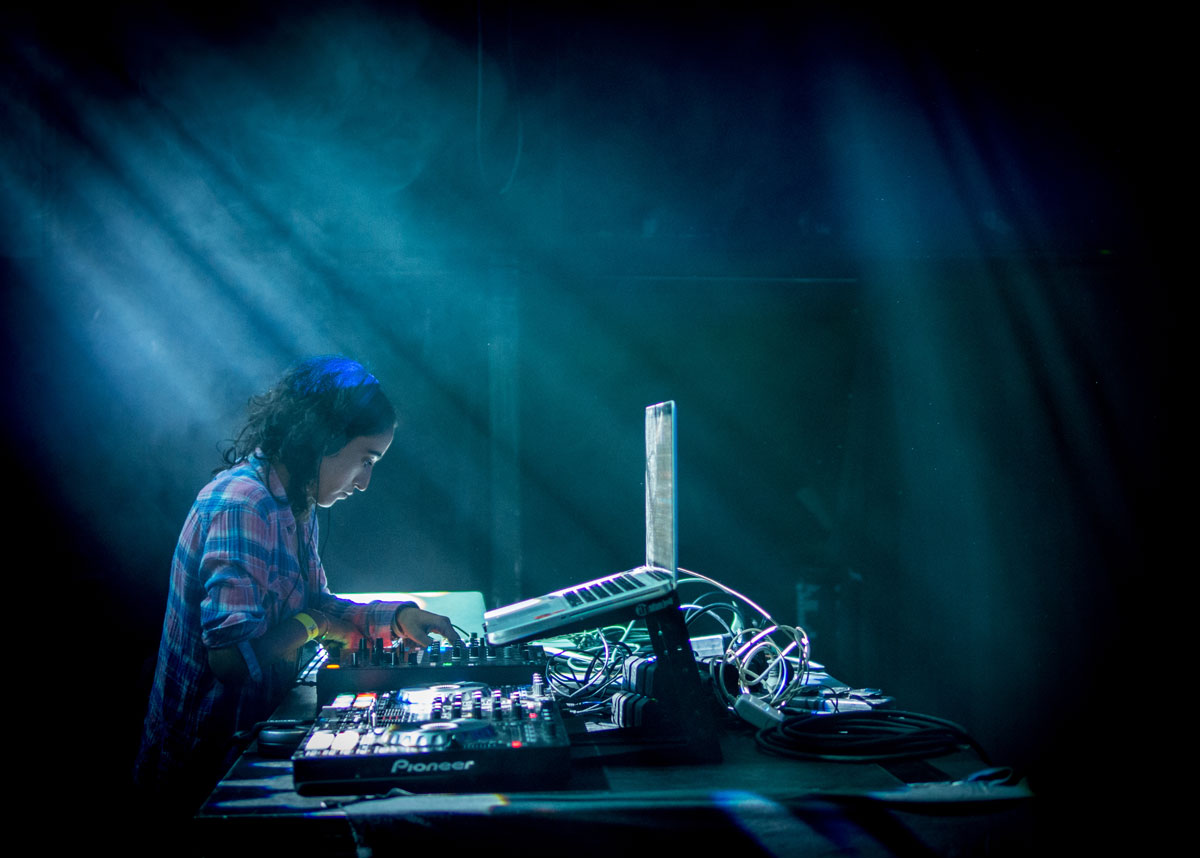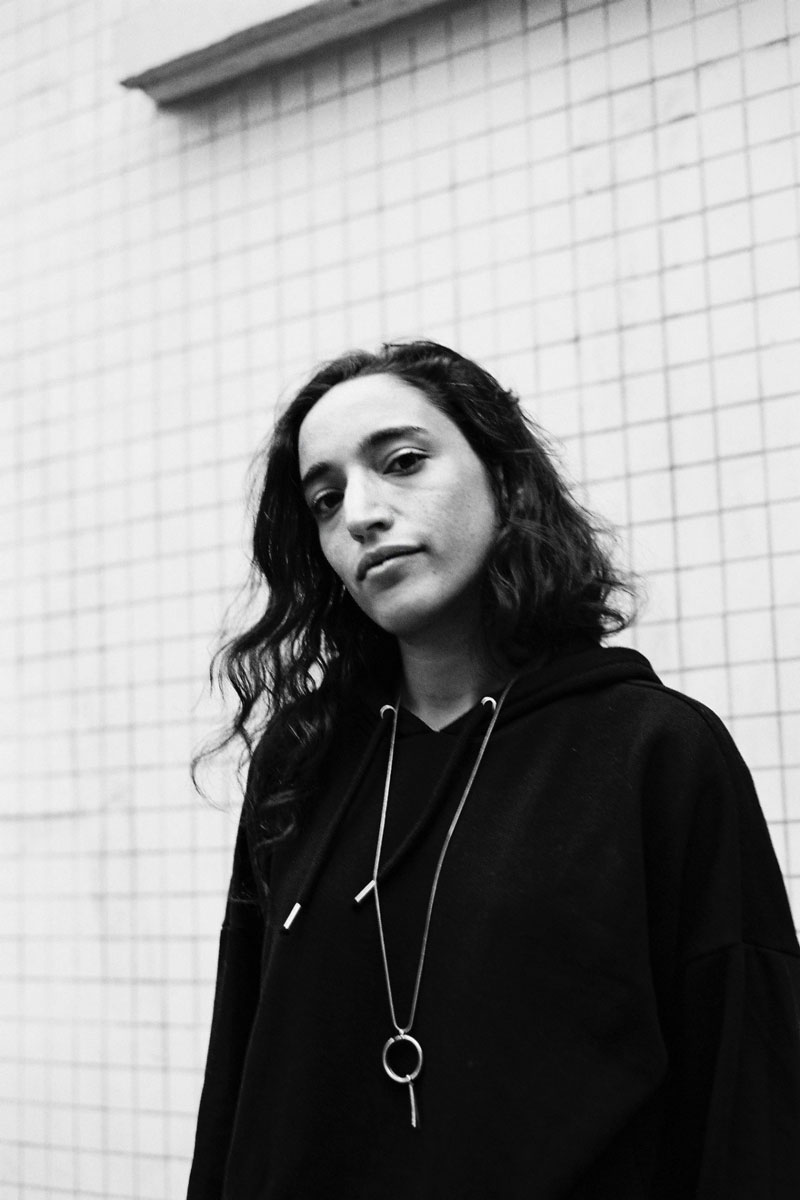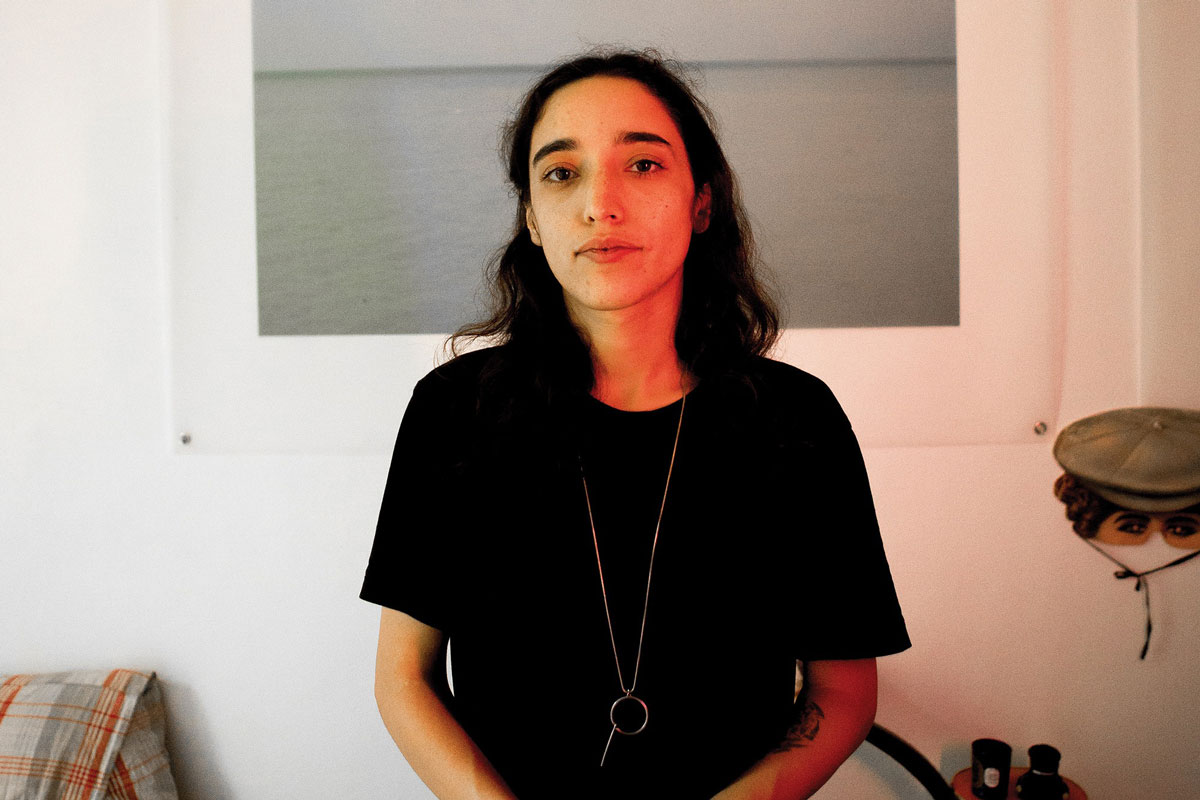“When I dance to techno, it takes me out of the space I’m in and puts me in another world.”

Some ten years ago, Sama Abdulhadi’s friends told her they were going to Satoshi Tomiie. Realizing it wasn’t a sushi restaurant but a legendary DJ’s rave, she had her first encounter with techno. Accidental or not, the experience was transformational, to say the least. Sama went on to become a trained audio engineer with enviable experience in sound design for over thirty films. Mesmerized by being in full control of her soundscapes, however, she delved deeper into music production and techno DJ-ing, fabricating tunes that disconnect you from anything of this world. Now famed and recognized as Palestine’s first techno DJ, she’s nevertheless aware of labels’ double-sided nature. Accepting “woman” and “Palestinian” with a tint of scepticism, Sama turns our heads towards music’s universal essence instead. Rhythmic and spacious yet with a cutting industrial tinge, her beats truly send out a heartfelt message of sound’s power to bring together, challenge and transform.
Sama, can you recount your first experience with electronic music?
In around 2008 or 2009, my friends told me: “We’re going to Satoshi Tomiie”. As you can imagine, I thought that’d be a sushi restaurant. I found myself in a huge empty space with a Japanese man playing electronic music, and when I asked about what and who that was, my friends simply said—Satoshi Tomiie. I still didn’t understand what was going on, so I asked what they meant, and they pointed at the DJ and told me, “This man is called Satoshi Tomiie and he’s a great techno DJ”. That was my first rave and techno experience. It was a total sushi accident that I will cherish forever.

You’ve previously said that you wanted to introduce electronic music to your local scene as means for Palestinian youth to escape from daily reality. Has techno provided room for diversion for young people there?
It did for me, but I can’t speak for everyone. Personally, when I dance to techno, it takes me out of the space I’m in and puts me in another world. I believe that non-natural sounds create a soundscape that doesn’t match reality, so electronic music can disconnect you from it.
What’s the current state of the club and rave scene in Palestine? Have many safe and intersectional spaces emerged in the last couple of years?
There are no clubs really; there are just bars and venues, where we make parties at. Nevertheless, the scene is currently growing extemely fast, and that’s really nice. There may not be countless spaces, but they’re all safe and cozy. It’s much more of a community event than people simply gathering in a space. Everyone knows everyone at the party; we all grew up together, which makes it more intimate—that’s the best part about it.
What more can be done, according to you?
We need to start legitimizng the scene, in a way. An actual scene can be built up through the establishment of a proper club; a festival can be created too.
It’s hard to find an interview with you that doesn’t have at least one of these labels in its title: first, woman, Palestinian. What’s these labels’ importance to you?
I know, right? It’s an honour to be recognized as that person, but I’m not just that. I guess it’s a double-edged sword—it’s great visibility for other women out there, but also, it makes people expect certain clichés. Some are often disappointed to discover I make industrial techno and not Arab-ish music. I simply want to show women they can get anywhere, with or without the need to match people’s expectations of them.

Have you ever desired to be stripped of them?
I don’t mind them, but I also don’t love them. These labels don’t mean that much to me, because I didn’t get into doing what I do for the purposes those labels put on me. I was a kid that wanted to DJ for my own weird reasons, and so I did. I was 9, I wasn’t trying to empower women. I simply wanted to control the music I make. I’m obviously happy that I get to do what I do, and perhaps I do empower women and open new doors for someone to start something new or to be who she is. Again, it’s a great honour, but it wasn’t intentional.
Can you, and do you, separate your personal political views from your music and your creative process?
Yes, most of the time I do. I never think of politics in a literal sense in order to make music. It did happen once that I heard rhythms in a bombing video about Gaza by accident, which made me do a track about it. But that was it. Usually, I just express myself and the sounds in my head, so if I feel imprisoned, or desperate or happy, you might find some sort of random message in my music about that sensation. For instance, the track Endless Hope, which I composed when I was 20 or so, is a direct message—I was very mad at the world for not doing anything about Palestine. Everyone felt like a machine in London, where I was living at the time. On the other hand, in my second EP, Quantum Morphosis, if you hear the sound design of the whole album, the sound effects of cars, the rain, and so on, it traces a full journey. Back then, I was living in Egypt and working on movies, and I think I was a bit claustrophobic, from sitting in the studio all day. So, I simply expressed myself through a story of sounds.
The techno you’re most known for is quite spacious, rythmic and industrial. Do you experiment with other sound atmospheres too? If so, can you tell us a bit more about that?
Of course! The things I play are different from what I produce, which is also different from what I listen to at home. What I love more than anything is ambient sounds, and that’s what I usually add into my mixes when I DJ. Most of the time you’d hear a hawk screech, a car pass by or a plane fly over; perhaps a hum or a zaghrouta, an oud or a bouzouki. I have a lot of samples that are lined up for me to play around with.
Circling back to you in the studio in Egypt—what led you to sound design for film?
I’m a trained audio engineer! After graduating from school in London, I went to work in Egypt and started out as a studio manager for an organisation. They were funding a documentary and part of that fund was an audio engineer donation, which was me. So, I first started with a movie called The Thread and The Wall, and then I got involved with another one, and another one. I simply fell in love with the job. I got really into sound design, then into music supervising, and before I knew it, I had over thirty movies out! I was working as a full-time, freelance sound designer and doing five films or so a month. I seriously loved movies, although it’s the only class I didn’t like as much in university when I was still studying. But life is funny like that, and I just go with it because in this way it remains entertaining.

What’s the difference between producing for a film and for a club set?
In your music, it’s just you. But in movies, the image controls you. Film music expresses someone else’s feelings through sound. Plus, films demand a more open-minded approach that goes beyond your personal taste. You need to work with genres that vary from classical music to experimental, rock and so on.
You were featured on the pages of our latest issue, UTOPIA | DYSTOPIA, as one of Glamcult’s favourite new talents. Do these two concepts play out in any way in your personal life or music-making practice?
This is a weird one, because what should have been an “utopia” as in me arriving in Paris, in this Disney-like landscape, is in fact almost freaky. It doesn’t feel like paradise, but more like an uncanny Western masqurade. And while Palestine and warzones are portrayed as dystopian, that’s home to me; it’s the norm and the reality. It’s hard to appreciate “utopia” when you’re so aware of your personal privilege too. This supposed “utopia” will never be normal as long as the rest of my family continues to live differently.
Words by Valkan Dechev
Photography by Desiré van den Berg, Aurélia Mazoyer and Roddy Bow
Follow Sama on Soundcloud
Notifications